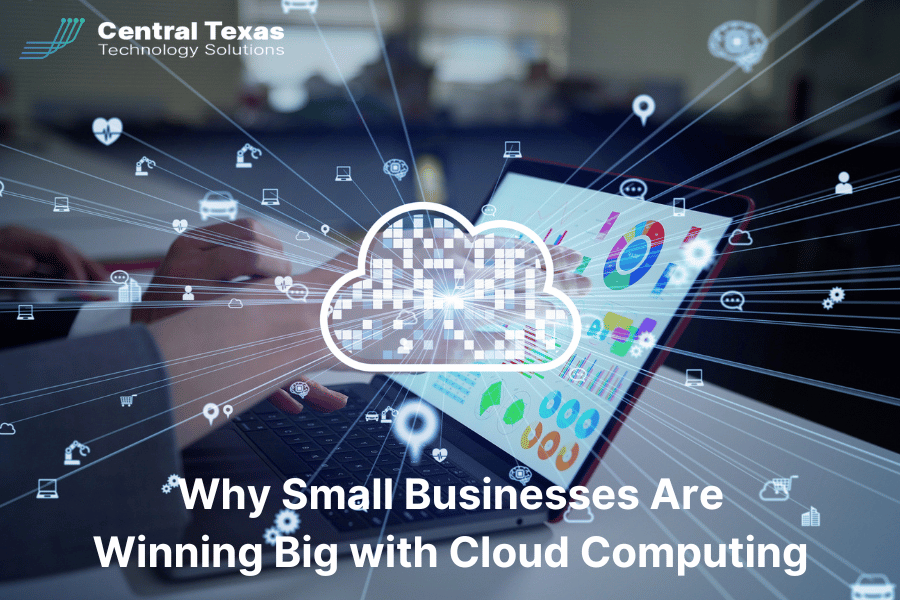
Once upon a time, only the biggest companies could afford cutting-edge technology. They had the budgets, the infrastructure, and the IT staff to back it all up. But today, the playing field has changed. Thanks to cloud computing, small businesses can now access the same high-performance tools and resources that used to be out of reach. It’s not just about staying competitive — it’s about thriving in a digital-first world.
What Is Cloud Computing and Why It Matters
Cloud computing delivers computing services like storage, servers, networking, software, and analytics over the Internet. Instead of hosting everything on-site, which often requires costly hardware and space, you access what you need online and pay only for what you use.
For small businesses, this model is a game-changer. It removes the burden of maintaining complex infrastructure while offering access to modern tools that were once reserved for enterprise-level companies. No more surprise maintenance costs or outdated systems. Just flexible, scalable, and secure solutions that grow with your business.
5 Ways Cloud Computing Gives Small Businesses a Competitive Edge
Here’s how cloud computing is helping small companies do more with less and stay ahead of the curve:
1. Access to Enterprise-Level Tools
Big companies thrive on automation, AI, and powerful analytics — and now, so can you. With cloud computing, small businesses gain access to:
-
Software-as-a-Service (SaaS) platforms that streamline operations
-
Advanced data tools that help you make smarter business decisions
-
AI-powered solutions that boost productivity and customer engagement
These tools help level the playing field and allow you to compete with organizations many times your size.
2. Cost Savings Without Sacrificing Quality
Running servers in-house isn’t cheap. It requires ongoing maintenance, upgrades, and IT support. Cloud computing eliminates much of that overhead by offering:
-
A pay-as-you-go pricing model
-
No need for costly hardware investments
-
Lower utility bills and fewer on-site energy needs
Every dollar saved can be reinvested into other areas of your business, such as marketing, customer service, or product development.
3. Work from Anywhere with Confidence
Whether your team is remote, hybrid, or always on the move, cloud computing keeps you connected. You can:
-
Access files and applications from any device with an internet connection
-
Collaborate with your team in real time
-
Serve customers promptly, no matter where you’re located
The flexibility cloud computing offers is key for today’s modern workforce.
4. Enterprise-Grade Security Made Simple
Cybersecurity is a growing concern for small business owners. Fortunately, many cloud providers offer built-in protections that include:
-
End-to-end encryption
-
Automatic backups and disaster recovery
-
24/7 system monitoring and threat detection
These features often surpass what many small businesses can afford to implement on their own, giving you peace of mind at a fraction of the cost.
5. Easy Scalability as You Grow
Business growth shouldn’t be held back by technology limitations. Cloud platforms allow you to:
-
Add new users and services with just a few clicks
-
Increase storage and processing power as needed
-
Scale back during slower seasons to save money
This level of flexibility means your technology can adapt as quickly as your business evolves.
Cloud Computing Isn’t Just for the Big Guys
Gone are the days when small businesses had to settle for outdated tools or clunky software. With cloud computing, you can operate more efficiently, protect your data, and serve your customers better — all without draining your budget.
If you want to stay competitive, nimble, and secure, it’s time to move to the cloud.
Frequently Asked Questions About Cloud Computing
What types of cloud computing services are best for small businesses?
Most small businesses benefit from Software-as-a-Service (SaaS) for tools like email, file storage, and collaboration. Infrastructure-as-a-Service (IaaS) and Platform-as-a-Service (PaaS) can be useful for companies with more complex technical needs.
Is cloud computing secure enough for my business data?
Yes, leading cloud providers invest heavily in security. They offer encryption, firewalls, access controls, and compliance tools that are often more advanced than what small businesses can afford on their own.
How does cloud computing help reduce IT costs?
It eliminates the need for expensive servers, physical storage, and in-house IT staff to manage infrastructure. You only pay for what you use, which can significantly lower your monthly expenses.
Contact CTTS today for IT support and managed services in Austin, TX. Let us handle your IT so you can focus on growing your business. Visit CTTSonline.com or call us at (512) 388-5559 to get started!
